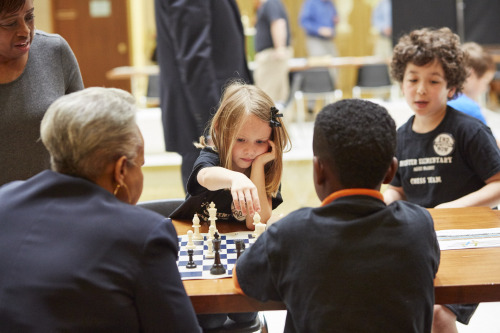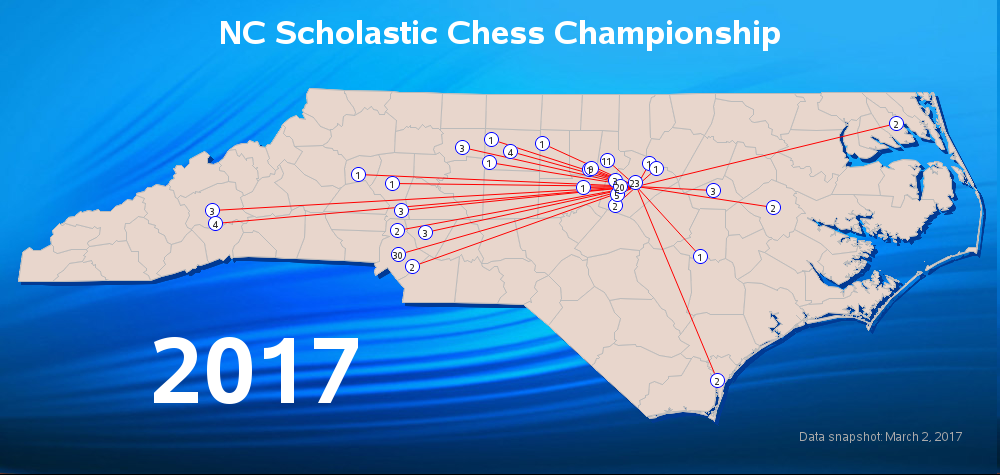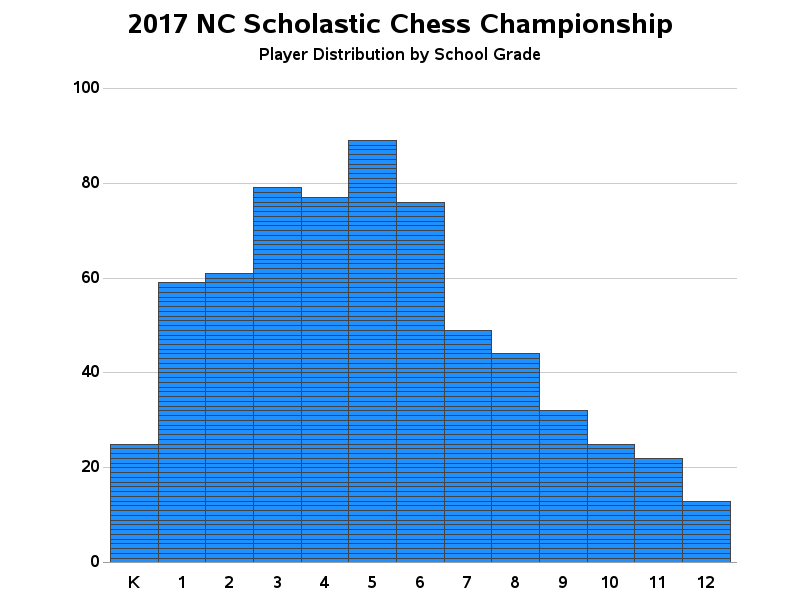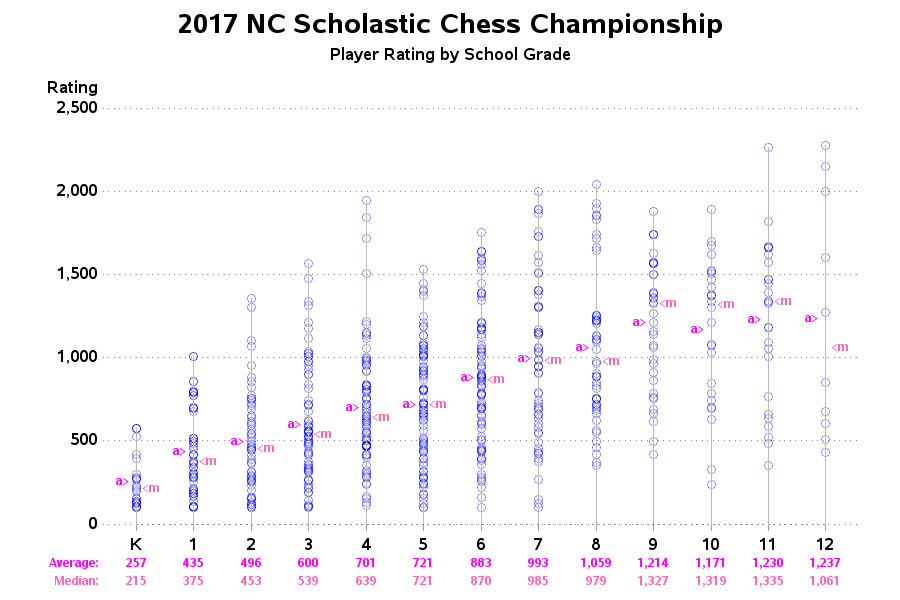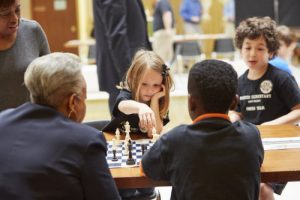
Once again, SAS is sponsoring the North Carolina Scholastic Chess Championship. The 43 year-old event is at the Raleigh Convention Center this weekend, March 11-12th. SAS sponsors this event because of the STEM education benefits of youth chess.
Hundreds of players have been preparing and studying. A few even practiced with state legislators at the March 1st NC Youth Chess Expo at the NC State Legislative Building. This NC Chess Association event raised awareness of the educational benefits of youth chess.
Visualizing registration data
This year, data visualizer extraordinaire Robert Allison has dug into a snapshot of registration data to help tell the tale. The map below shows the localities sending students to the championship. With youth chess growing across the state, future maps should reach even further in to the mountains, valleys, rolling hills, lowlands and outlying islands of the state.
The next chart tells what NC coaches and parents already know. The prime time for youth chess is around fifth grade. So much chess in elementary school? Many are surprised. The K-1 section is even more curious. At the tournament, this section plays only Saturday and plays shorter games – 30 minutes for all of a player's moves. That's opposed to the hour afforded the K-3 and K-5 players and the ninety minutes for the K-12 and K-8 varsity sections. With many of the players barely able to reach the far side of the board, the K-1 room is as adorable as you could imagine.
A blog post like this wouldn't be complete without talking ratings. The scatter plot below shows the ratings broken down by grade. A couple of those dots in the upper right are chess masters and players on the Carolina Cobras, a team in chess.com's Pro Chess League. Moving across to the left, some of these top players aren't going to see much of their elementary school peers in the playing rooms. For example, Vishnu Vanpalli, the top rated fourth grader, will be "playing up" in the K-12 varsity section. He will be sitting across the table from opponents who have their own car keys in their pockets.
Anyone familiar with Robert Allison's work knows that he is always game for a coding adventure. In this case, the adventure is a game – the Fischer-Byrne game of the century. Coded with SAS/Graph. Click through and enjoy!
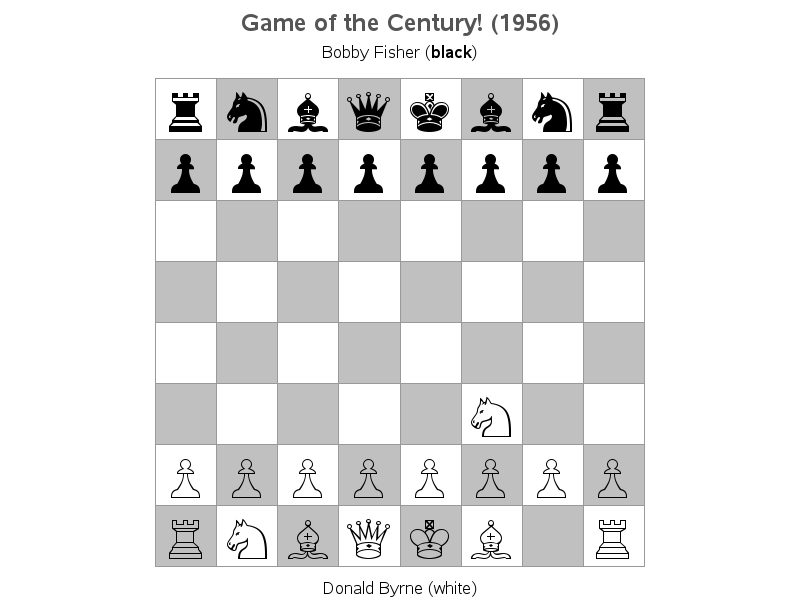 If you are interested in learning how Robert did it, then check out his post "What's your next move? (analytics for a chess tournament."
If you are interested in learning how Robert did it, then check out his post "What's your next move? (analytics for a chess tournament."
